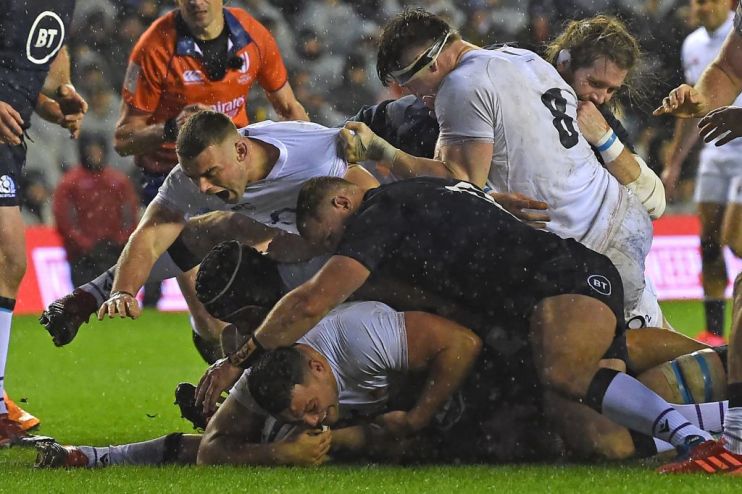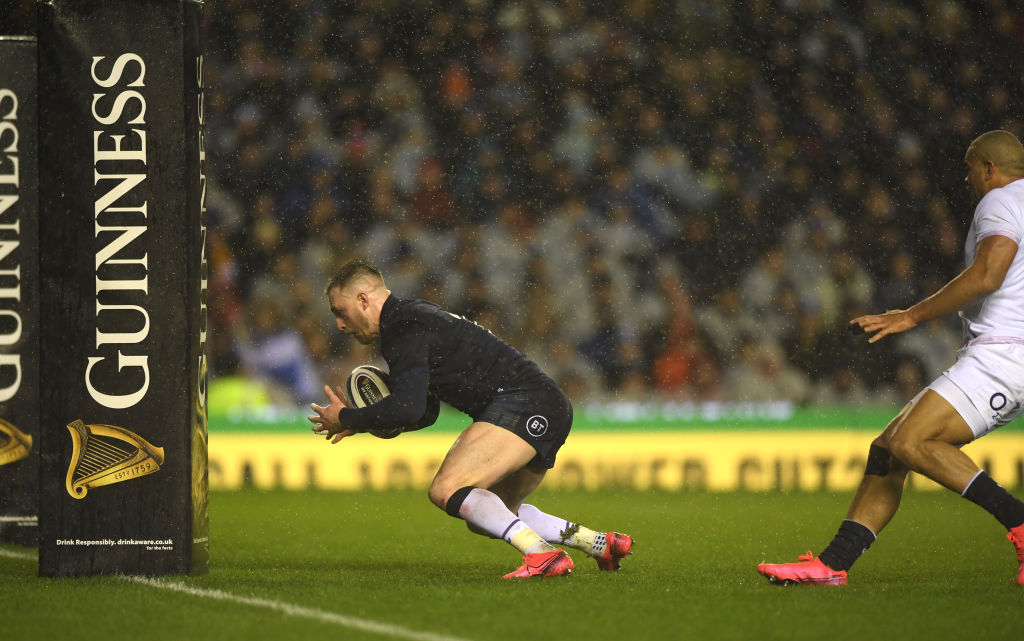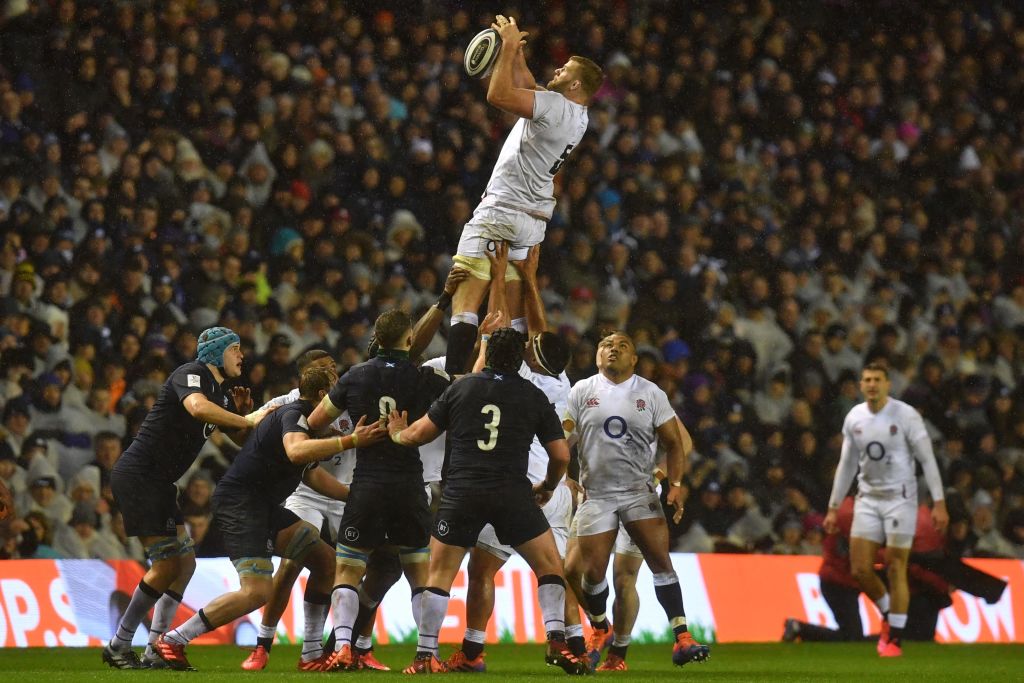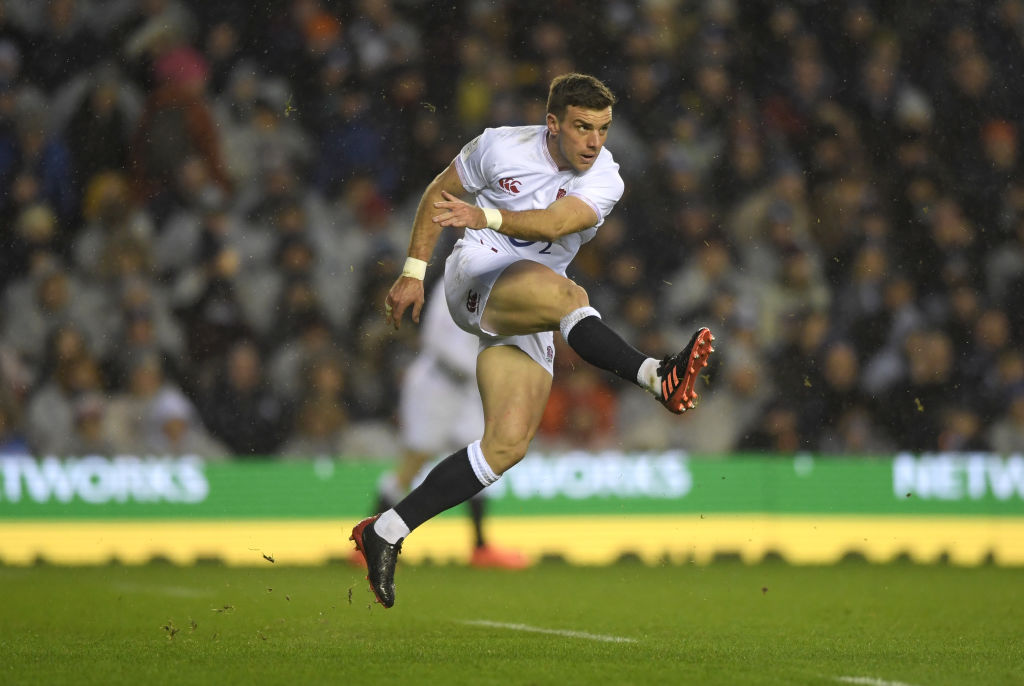England weathered the storm in Scotland to keep Six Nations dreams alive

It was a Six Nations match that will be remembered for everything but the dire spectacle on the pitch as England walked into the eye of the storm at Murrayfield on Saturday.
A hostile reception was guaranteed for Eddie Jones and his team on their arrival, but not many would have foreseen a stray bottle landing on the head of Neil Craig, England’s head of high performance, as he stepped off the team bus.
Jones called it, and the behaviour of the Scottish crowd, “disrespectful”, after they jeered Owen Farrell every time he kicked for posts. The Scottish Rugby Union said the bottle was plastic and that there was no evidence of it being thrown rather than blown by a gust.
“We weren’t expecting beer bottles to be thrown, that’s a new trick,” said Jones. “Neil has a hard head, I know that and there’s not much inside it. He will be alright.”
Having weathered the storm off the pitch, England had to deal with one on it as they came out on top of a game that could have gone either way, winning 13-6.
Treacherous conditions
The wind swirled and the rain hammered down as Storm Ciara arrived in the UK and wreaked havoc on a game littered with errors.
Scotland captain Stuart Hogg called the conditions the most difficult he had ever played in but going into the final 10 minutes, with the game still poised at 3-3, they were in with a shot of winning.
Unfortunately, it was a second crucial mistake from Hogg in as many weeks that gifted England the Calcutta Cup.

The 27-year-old meant to let a loose ball bounce back over his try-line before grounding it, but instead conceded a 5m scrum from which Ellis Genge scored the winning try.
By this point England had firmly established superiority at set pieces as Scotland struggled to build momentum in attack.
Dominant up front
The hosts lost eight of their 19 lineouts and also conceded 20 turnovers as Jones’s use of three No7s in the back row – Tom Curry, Sam Underhill and Lewis Ludlam – paid dividends at the breakdown, although there still remains a Billy Vunipola-sized ball-carrying hole in this team.
Despite those efforts, it was a game ultimately defined, and ruined, by the weather. It left both sides relying on kicking for territory, hoping to pin their opponents back and force errors.
But with errors on top of errors, any gains were quickly nullified in a match where points were a rare commodity.

Kicking game
There were 79 kicks from hand – just about one a minute – with England’s 42 almost as many as their 66 passes.
It allowed Farrell and George Ford to take the initiative and, bar an early up-and-under that almost went backwards, it was a plan that largely played to their strengths.
But if there were any doubts about how blustery the conditions were, Farrell’s three missed penalties that veered off either side of the swaying posts ended them.

Jones faced a number of questions about his team coming into this game after a dismal defeat to France, but the performance on this occasion vindicated his decision to play three flankers and put six forwards on the bench.
It also went some way to answering questions about the team’s ability to manage games and adapt on the pitch.
But while the result was hugely important for England in their quest to win the Six Nations, it was impossible to draw any real conclusions about where this team stands ahead of what looks set to be a crucial tie with Ireland in two weeks’ time.